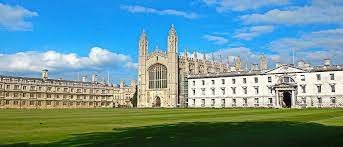Pursuing higher education in Canada is a dream for many students around the globe. With its reputable institutions and quality education system, Canada remains a top destination for postgraduate studies. However, for students holding Higher National Diploma (HND) certificates or undergraduate degrees with second class and third class honors, the path to pursuing a Masters degree in Canada might seem murky.
This blog post aims to shed light on schools and universities in Canada that accept these qualifications for Masters degree programs, providing hope and guidance to many international students.
What Are The Criteria for Admission into Masters Degree Programs In USA Schools And Universities
The criteria for admission into Master’s degree programs in US schools and universities can vary depending on the specific program, institution, and even individual faculty members. However, here are some of the general criteria you can expect to encounter:
- Academic Transcripts: Applicants must submit their academic transcripts for all previous post-secondary education. Canadian institutions will evaluate HND certificates, second class, and third class honors degrees to determine if the applicant meets the academic standards required for admission.
- Degree Equivalency: Students holding an HND or a bachelor’s degree from outside Canada may need to undergo an assessment to determine the Canadian equivalency of their qualifications. This can involve services such as the World Education Services (WES) assessment.
- GPA Requirements: While specific GPA requirements can vary by program and institution, most schools require a minimum GPA for admission. Applicants with second class and third class honors need to highlight their strengths and any additional qualifications to enhance their application.
- Graduate Record Examination (GRE) or Graduate Management Admission Test (GMAT): Depending on the field of study, some programs may require scores from standardized tests such as the GRE or GMAT. This is more common in business, management, and some engineering programs.
- English Language Proficiency: International applicants whose first language is not English must demonstrate proficiency in English through standardized tests like the TOEFL or IELTS. Minimum score requirements vary by program and institution.
Each Canadian institution and program has its unique set of admission criteria. Prospective students are encouraged to thoroughly research and reach out to admissions offices for detailed and specific admission requirements.
Read Also: Fully Funded Masters And Phd Scholarships In USA 2023-2024
Schools in Canada that Accept HND Certificates, Second Class and 3rd Class for Masters Degree Programs
Canadian universities have increasingly become destinations for students from around the world who are looking to further their education. And while most schools in Canada require that applicants have a bachelor’s degree, there are some schools that may accept students with HND certificates, second class, and third class qualifications.
1) Yorkville University
Yorkville University offers a range of graduate programs designed for working professionals, including master’s degrees in counseling psychology, education, and business administration. They prioritize flexibility and may consider applicants with diverse educational backgrounds.
2) University Canada West (UCW)
University Canada West offers various graduate programs in business, technology, and management. They are known for their flexible admission policies and may consider applicants with HND certificates or lower class qualifications, particularly if they demonstrate relevant work experience and potential for success in graduate studies.
3) University of Fredericton (UFred)
The University of Fredericton offers online graduate programs in areas such as business administration, occupational health and safety, and cybersecurity. They emphasize accessibility and may consider applicants with diverse educational backgrounds for admission into their programs.
4) Algoma University
Algoma University, located in Ontario, offers graduate programs in computer science, community economic and social development, and environmental studies. While specific requirements may vary by program, Algoma University is known for its commitment to diversity and inclusion in admissions.
5) Lakehead University
Lakehead University, with campuses in Thunder Bay and Orillia, offers a variety of graduate programs in areas such as education, engineering, and social work. While they have specific admission requirements, they may consider applicants with non-traditional qualifications on a case-by-case basis.
Universities in Canada that Accept HND Certificates, Second Class and 3rd Class for Masters Degree Programs
If you’re interested in pursuing a master’s degree in Canada, you’ll be happy to know that there are a number of universities that accept HND certificates, as well as 2nd and 3rd class honours degrees.
Many of these schools also have specific programs that are designed for international students, so be sure to check with the school you’re interested in to see if they offer any specializations.
1) Athabasca University
Athabasca University is known for its open admission policy and flexibility in recognizing prior learning and work experience. They offer a variety of online master’s programs, and applicants with diverse educational backgrounds may be considered for admission based on a combination of academic qualifications, work experience, and other relevant factors.
2) Thompson Rivers University
Thompson Rivers University (TRU) is recognized for its inclusive approach to admissions. TRU offers a range of graduate programs and considers applicants with diverse educational backgrounds. They may assess applicants based on their overall academic profile, work experience, and potential for success in graduate studies.
3) University of Manitoba
The University of Manitoba is known for its commitment to accessibility and diversity. While admission requirements for master’s programs vary by department, the university may consider applicants with non-traditional qualifications on a case-by-case basis. Applicants are encouraged to provide comprehensive documentation of their academic background, work experience, and relevant skills.
4) Memorial University of Newfoundland
Memorial University of Newfoundland (MUN) is known for its inclusive admissions policies and support for students from diverse backgrounds. While specific requirements vary by program, MUN may consider applicants with HND certificates or lower class qualifications for admission into master’s programs, particularly if they can demonstrate relevant work experience and readiness for graduate-level studies.
5) Royal Roads University
Royal Roads University is recognized for its innovative approach to education and commitment to lifelong learning. The university offers a range of master’s programs designed for working professionals, and they may consider applicants with non-traditional qualifications, such as HND certificates or lower class degrees, particularly if they have relevant work experience and demonstrate a strong commitment to their field of study.
It’s important for prospective students to thoroughly research the admission requirements and policies of each university and program they are interested in.
FAQS
Can I use HND for Masters in Canada?
Yes, some universities in Canada may consider applicants with HND certificates for admission into master’s programs, depending on the institution’s policies and the specific program requirements. However, additional criteria such as work experience and potential for success in graduate studies may also be taken into consideration.
Can you do Masters with second class lower in Canada?
It is possible to pursue a master’s degree in Canada with a second class lower classification, but admission requirements vary by university and program. Some institutions may consider applicants with lower class qualifications based on other factors such as relevant work experience, letters of recommendation, and a strong statement of purpose.
Does University of British Columbia accept HND?
The University of British Columbia (UBC) does not typically accept HND certificates for admission into master’s programs. UBC, like many other Canadian universities, generally requires applicants to have completed a bachelor’s degree or its equivalent from a recognized institution for admission into graduate programs.
Can I use my ND result to study in Canada?
Generally, a National Diploma (ND) may not be sufficient for admission into master’s programs in Canada. Most universities in Canada require applicants to have completed a bachelor’s degree or its equivalent from a recognized institution for admission into graduate programs. However, some universities may offer bridge programs or pathways for students with ND qualifications to upgrade their credentials for admission into master’s programs.
What is the minimum CGPA requirement for masters in Canada?
The minimum CGPA (Cumulative Grade Point Average) requirement for master’s programs in Canada varies depending on the university and program. Generally, competitive programs may have higher CGPA requirements, typically ranging from 3.0 to 3.5 on a 4.0 scale. However, meeting the minimum CGPA requirement does not guarantee admission, as other factors such as letters of recommendation, statement of purpose, and relevant experience are also considered.
Conclusion
Canadian universities and colleges are known for their inclusive and holistic approach to admissions, focusing on a broad spectrum of criteria. This method ensures that all applicants, regardless of their previous academic standings, have a fair chance to prove their eligibility and fit for their chosen program. For students with HND certificates, second class, and third class degrees, this is an encouraging scenario. It means that with the right preparation, fulfilling the specific criteria, and presenting a strong application, achieving your academic and professional aspirations in Canada is within reach.
Furthermore, engaging in thorough research and directly communicating with admissions offices can provide you with insights into how your specific qualifications are viewed and the best way to present them. Universities and colleges in Canada are typically very responsive and willing to guide prospective students through their admissions process. Taking advantage of this support can significantly demystify the application process and tailor your application to better align with the expectations of your desired institution.






